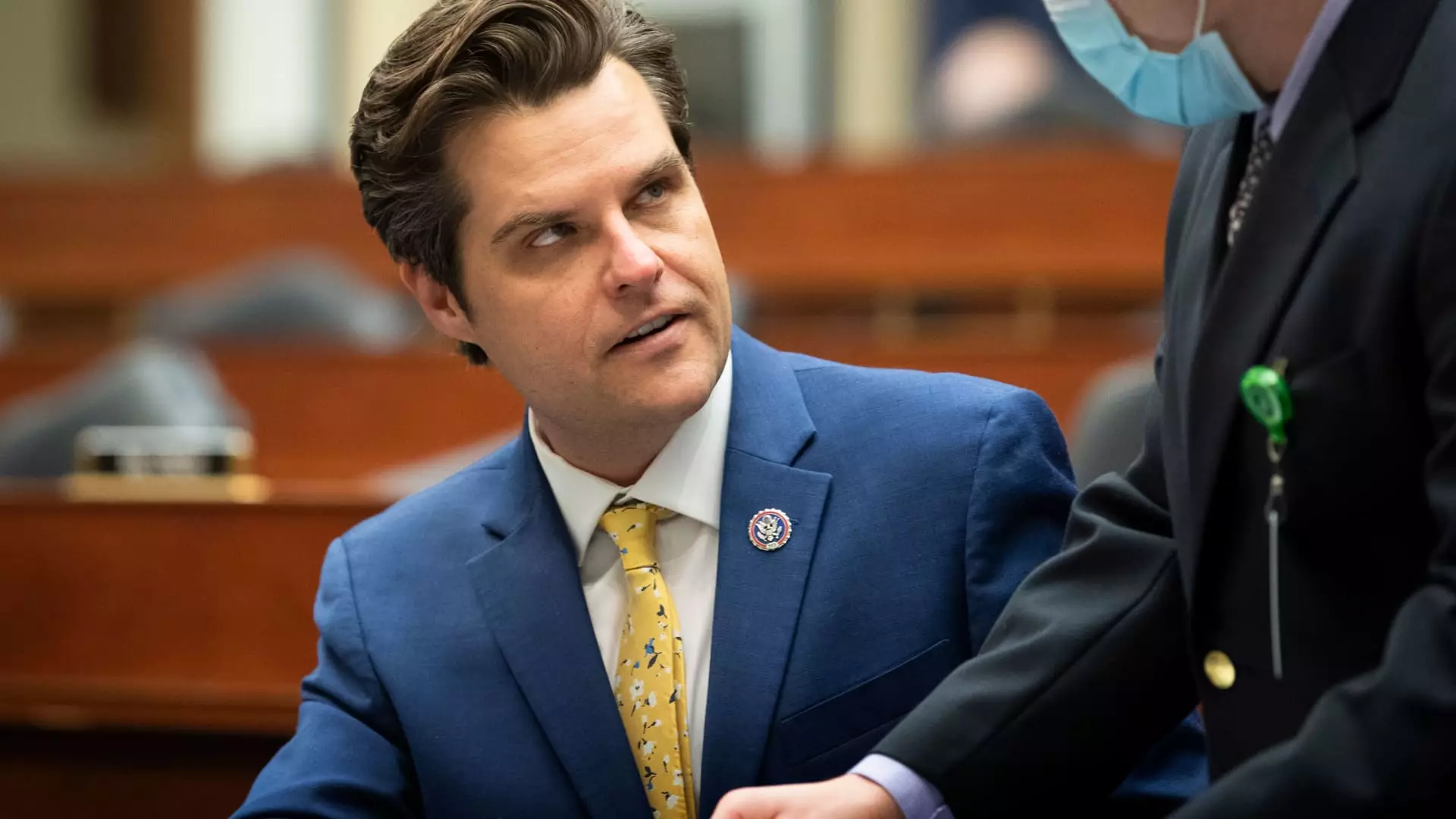The decision by the House Ethics Committee to release a report investigating former Republican Representative Matt Gaetz marks a significant point in a controversy that has loomed over his political career. Following a secret vote that could unveil details on allegations of sexual misconduct and drug use, the implications of this report extend beyond Gaetz himself; they reflect broader issues of political accountability and the role of investigative bodies within Congress.
Matt Gaetz’s political journey has frequently intersected with controversy. Rising to prominence through his vocal support for former President Donald Trump, Gaetz’s career faced turbulence beginning with reports of allegations relating to sexual misconduct and drug use. The House Ethics Committee initially halted its inquiry, waiting for the Department of Justice (DOJ) to conclude its own investigation into sex trafficking allegations. The DOJ ultimately closed its case without pressing charges against Gaetz, an outcome he has since touted as a form of exoneration. However, the resurfacing of the House investigation presents a more complex narrative, suggesting a deeper, unresolved scrutiny of his actions while serving in Congress.
In the wake of the committee’s decision, Gaetz has been vocal about his disapproval, using social media platforms to assert his innocence. His rhetoric paints a picture of a man who argues he has been wronged by a political system that he claims is biased against him. Gaetz insists that none of the allegations have ever been substantiated in a court of law, stating, “Any claim that I have would be destroyed in court.” This statement underscores a fundamental dynamic of the investigation: while legal charges have not materialized, public perception and reputational damage can persist without judicial resolution. Furthermore, Gaetz’s admission about his past behavior illustrates a nuanced risk; he acknowledges prior indiscretions while vehemently denying criminal conduct.
The core of the ethics investigation delves into whether Gaetz engaged in sexual misconduct, illicit drug use, and other inappropriate activities while in office. The bipartisan nature of the committee’s inquiry signifies an effort by Congress to confront ethical breaches head-on, regardless of party affiliation. With members citing the need to maintain integrity within the legislative branch, this move raises important questions about accountability. Can an institution remain self-correcting when its members are embroiled in scandal?
Moreover, the committee’s decision to release findings following Gaetz’s resignation stirs a debate about legislative jurisdiction and precedent. House Speaker Mike Johnson’s apprehension about releasing the report invokes a crucial concern: does it set a dangerous precedent for future investigations? The fear is that sharing results about individuals no longer in office could compromise the integrity and confidentiality of the committee’s processes, potentially deterring others from candidly addressing their actions.
While the Ethics Committee is treading new waters, it is not without historical precedent. In recent decades, instances where Congress opted to publicly report on former members’ misconduct exist, including actions involving campaign financial misconduct and personal transgressions. However, the political climate has shifted radically since those cases were resolved, raising the stakes for how investigations are conducted and reported. A challenge remains in balancing transparency with the rights of individuals who have left office. The implications from the Gaetz case could set standards for how ethically questionable behavior is judged and addressed in a politically polarized environment.
As the Ethics Committee prepares to release its findings, the repercussions for Matt Gaetz and the broader legislative environment remain to be seen. This situation underscores the intricate relationship between ethics, accountability, and the political landscape. Regardless of the report’s outcome, it reiterates the necessity for transparent oversight within Congress, an ongoing challenge in a political sphere fraught with conflicts and competing interests. How Gaetz and others navigate these repercussions will shape not only his future but potentially the ethics discourse within the entire legislative body moving forward.

